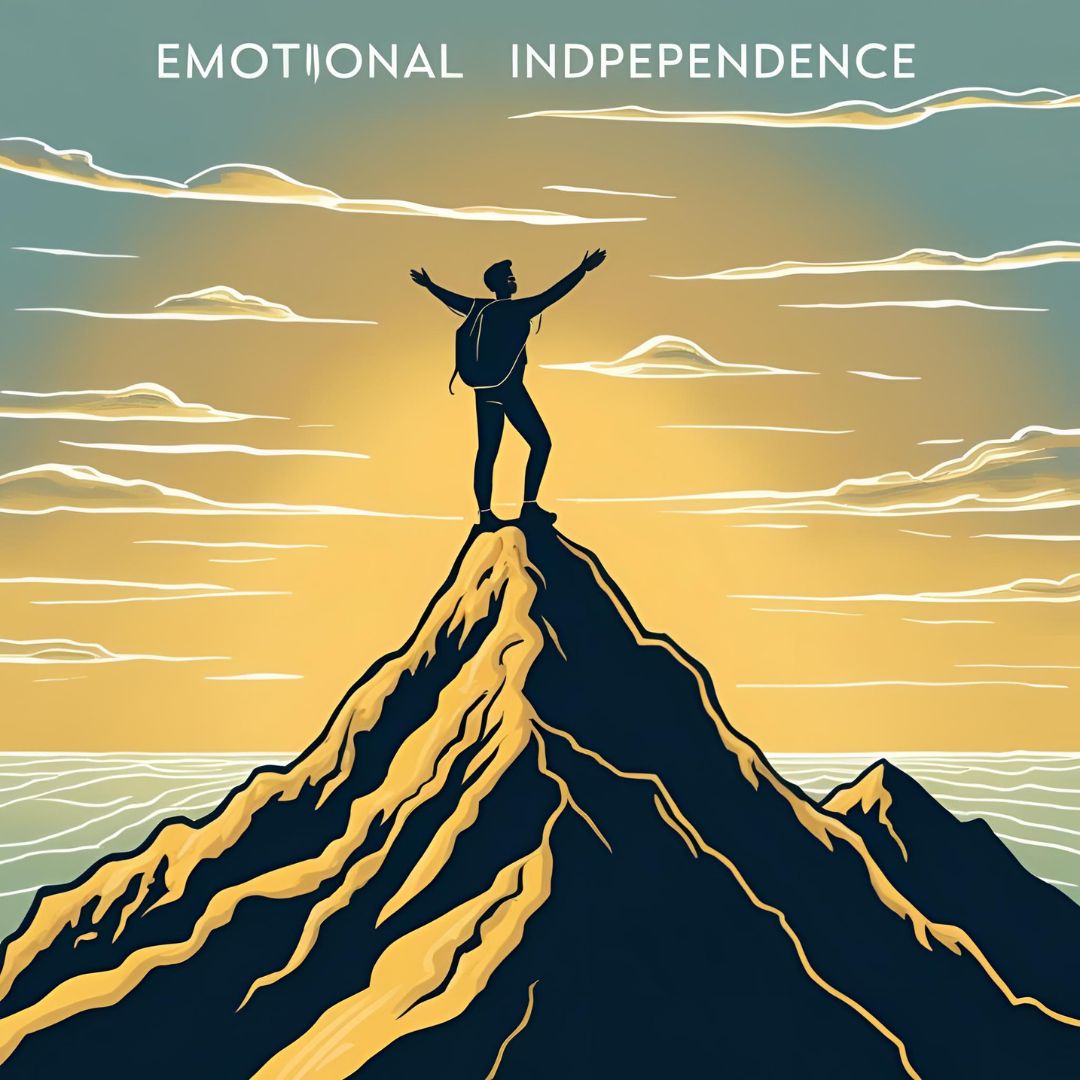LifeHetu
16 Mar 25 10:00 am
Emotional Dependence in Relationships - Why It’s Time to Reclaim Yourself
Struggling with emotional dependence in your relationship? Understand why it’s crucial to reclaim your individuality and how psychologists can help you build healthier, more balanced connections.

Introduction
Relationships are an integral part of human existence. They provide companionship, support, and a sense of belonging. However, when emotional dependence begins to overshadow individuality, it can lead to unhealthy patterns that harm both partners.
In India, where relationships are deeply rooted in cultural and familial expectations, emotional dependence can often go unnoticed or even be romanticized. However relying entirely on a partner for emotional well-being can lead to an imbalance, affecting self-esteem and the relationship’s longevity.
This blog delves into emotional dependence, its impact, and how to reclaim your individuality with the guidance of expert psychologists, virtual therapy, and online counseling services.
What Is Emotional Dependence?
Emotional dependence occurs when one partner relies excessively on the other to meet their emotional needs, validate their self-worth, or provide happiness. While some level of reliance is normal and healthy, excessive dependence can create challenges. Many of us are taught that our partner should be everything, a friend, mother, father, and every role possible. But with this comes an immense burden.
Signs of emotional dependence include:
- Feeling incomplete or anxious without your partner.
- Constantly seeking reassurance or validation.
- Neglecting personal interests or goals in favor of the relationship.
- Fear of being alone or abandoned.
Emotional dependence is not a reflection of love but rather a sign of underlying insecurities that require attention and resolution.
Why Emotional Dependence Develops
- Cultural Conditioning
In India, societal norms often idealize the notion of self-sacrifice and complete devotion in relationships. These expectations can blur the lines between healthy support and excessive dependence.
- Past Experiences
Childhood experiences, such as lack of parental affection or past relationship trauma, can contribute to an intense need for emotional security.
- Low Self-Esteem
Individuals with low self-worth often seek validation from their partners, leading to dependency.
- Fear of Loneliness
The fear of being alone can drive people to overly rely on their partners for emotional stability, even at the cost of their independence.
The Impact of Emotional Dependence
- Strained Relationships
Excessive dependence can create pressure on the partner being relied upon, leading to frustration or resentment over time.
- Loss of Identity
When you prioritize your partner’s needs over your own, it can lead to the loss of your individuality and personal goals.
- Emotional Imbalance
Relying solely on a partner for emotional fulfillment can make you vulnerable to feelings of insecurity, anxiety, and unhappiness when the relationship faces challenges.
- Reduced Relationship Satisfaction
Healthy relationships thrive on mutual respect and individuality. Emotional dependence can hinder personal growth, reducing overall satisfaction in the relationship.

How to Reclaim Yourself?
- Acknowledge the Issue
The first step towards reclaiming your individuality is recognizing and acknowledging emotional dependence. Accepting that this dependence exists allows you to take meaningful steps toward change.
- Develop Self-Awareness
Reflect on your feelings and behaviors. Ask yourself:
- Why do I feel incomplete without my partner?
- What aspects of my life am I neglecting?
Journaling or speaking with a psychologist can help uncover the root causes of dependence and foster self-awareness.
- Cultivate Independence
Start focusing on your interests, hobbies, and goals. Whether it’s taking up a dance class, pursuing a career goal, or simply spending time with friends, these activities can help rebuild your sense of self.
- Set Healthy Boundaries
Boundaries are essential for any relationship. Discuss your needs and expectations with your partner, ensuring that both individuals have the space to grow independently.
- Foster Self-Love
Building self-esteem is crucial in overcoming emotional dependence. Practice self-care, celebrate your achievements, and remind yourself of your worth outside the relationship.
- Seek Professional Guidance
Reclaiming yourself can be a challenging journey, especially when deep-seated insecurities or past experiences are involved. Relationship counselors specialize in helping individuals build emotional resilience, develop independence, and foster healthier relationships.
LifeHetu: Your Partner in Personal Growth
At LifeHetu, we understand the complexities of emotional dependence and its impact on relationships. Our platform offers expert counseling services tailored to your unique needs.
Services Offered:
- Adult Counseling: Focused on building self-esteem and fostering personal growth.
- Relationship Counseling: Helps couples understand and address emotional imbalances in their relationship.
- Workshops on Emotional Well-Being: Designed to educate individuals on managing emotions and cultivating independence.
Our psychologists are experienced and adept in addressing the cultural nuances of relationships in India, ensuring that the guidance you receive is relevant and empathetic.
A Psychologist’s Perspective on Emotional Dependence
Psychologists emphasize that emotional dependence is not inherently negative but becomes problematic when it disrupts individuality and balance in relationships. Here are some expert insights:
- Understand the Balance of Dependency
Healthy relationships involve interdependence—a mutual reliance where both partners support each other while maintaining their own identity.
- Focus on Emotional Regulation
Learning to manage emotions independently can reduce the need for constant validation from your partner. Techniques such as mindfulness and stress management can be highly effective.
- Normalize Seeking Help
In India, seeking professional help for relationship issues is often stigmatized. However, counseling can provide valuable insights and tools to overcome emotional challenges and foster growth.
Changing the Narrative
Reclaiming yourself does not mean distancing yourself from your partner; it means finding a balance where both individuals can thrive independently while supporting each other. Here’s how you can change the narrative:
- Embrace Personal Growth: Understand that your individuality adds value to your relationship.
- Communicate Openly: Share your journey with your partner and encourage them to support your growth.
- Leverage Professional Support: Use counseling services to navigate challenges and foster a healthier dynamic.
Conclusion
Emotional dependence, while often rooted in love and care, can hinder personal and relational growth. By recognizing its impact and taking steps to cultivate independence, you can build a stronger, more fulfilling relationship with yourself and your partner.
LifeHetu’s expert psychologists are here to guide you through this journey, offering compassionate support and practical tools to help you reclaim your individuality and foster healthier relationships.
Remember, a fulfilling relationship begins with a fulfilling sense of self. Take the first step toward personal growth with LifeHetu today.
Related Reads. Similar Blogs to Check Out.


